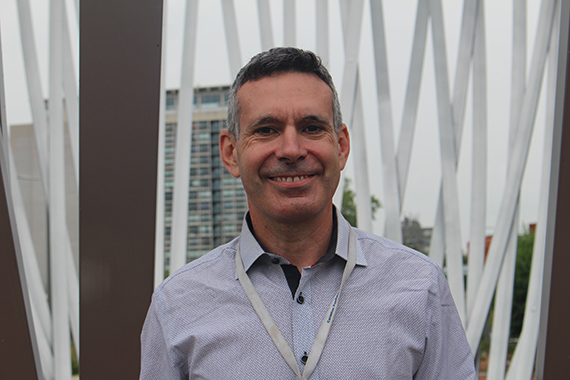MUHC in the Media - November 24, 2025

The MUHC will use AI to optimize chemotherapy treatments at the Cedars Cancer Centre
Starting in January, the McGill University Health Centre will use artificial intelligence to optimize the organization of its chemotherapy treatments. “Thanks to this innovative project, we hope to be able to treat more patients, faster, using the same resources,” says Dr. Lucie Opatrny, president and executive director of the MUHC. “This is a great example of how artificial intelligence can help us improve efficiency while maintaining the highest standards of care.” AI will be used to plan treatment schedules, a task that previously required almost two full-time staff members, explains MUHC Director of Nursing Alain Biron. "We have 100 patients a day who come to the McGill University Health Centre for chemotherapy treatment. We have 52 treatment chairs and about 20 nurses," he said. So it's extremely complex to make these schedules, because there are treatments that last two hours, three hours, four hours... It's a puzzle, and you have to put all the pieces together to naturally lose as little time as possible." La Presse, MSN, CTV, CityNews

Canadian-led research makes blood thinner breakthrough; heart treatment doctors dispel myth of stroke risk after surgery
A study published in the New England Journal of Medicine and co-led by Dr. Atul Verma, director of the Division of Cardiology at the McGill University Health Centre, is being described as a game changer for people with atrial fibrillation, the most common cause of irregular heartbeats. The research found that staying on blood thinners after successful treatment is not necessary because the risk of stroke after ablation is so low it is as if patients never had atrial fibrillation. “It is incredibly rewarding to see years of careful research translate directly into safer, simpler care for patients,” said Dr. Verma. Winnipeg Sun

Introducing peanuts earlier to reduce allergies
Introducing peanuts way before the age of three years old in babies' diets has helped reduce the prevalence of allergies in this population, shows a recent study led by Dr. Moshe Ben-Shoshan, a specialist in pediatric allergy and immunology at the Montreal Children’s Hospital. The Telegram

RSV: a thousand hospitalizations avoided last year
Access to a new drug that prevents respiratory syncytial virus (RSV), nirsevimab, prevented a thousand children from being hospitalized last year, highlights Dr. Jesse Papenburg, a pediatric infectious disease specialist and medical microbiologist at the Montreal Children's Hospital. Radio-Canada
He also gave interviews on vaccination against influenza. La Presse, Radio-Canada, TVA Nouvelles, 98.5 FM
